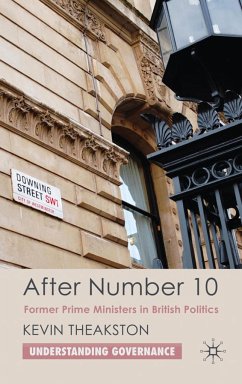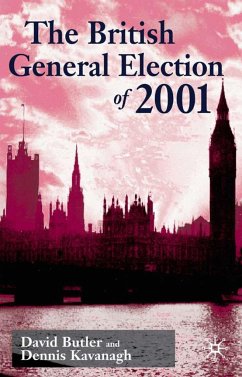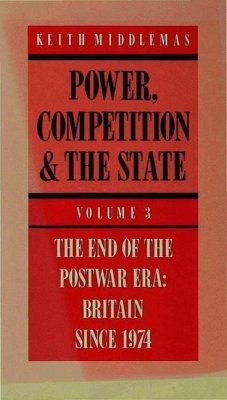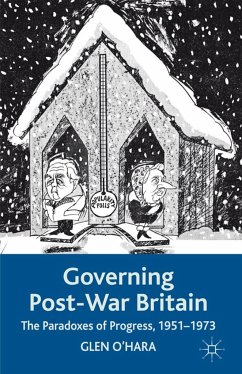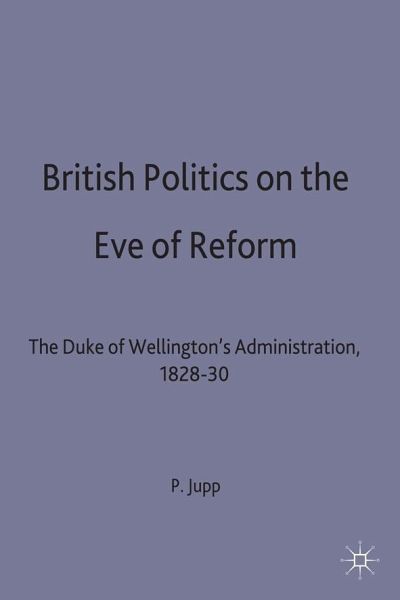
British Politics on the Eve of Reform
The Duke of Wellington's Administration, 1828-30
Versandkostenfrei!
Versandfertig in 6-10 Tagen
121,99 €
inkl. MwSt.

PAYBACK Punkte
61 °P sammeln!
Based on an extensive range of sources, this impressive book analyses the principal institutions and features of British politics on the eve of reform: the monarchy, the prime ministership, the cabinet, the departments of State, parliamentary legislation, investigation, debate and parties, and the relationship between Parliament, the media, public opinion and popular politics. Designed to provide an accessible guide to how British politics was conducted in the early nineteenth century, this book leads to two main conclusions about pre-Reform politics: the unpredictability and openness of parli...
Based on an extensive range of sources, this impressive book analyses the principal institutions and features of British politics on the eve of reform: the monarchy, the prime ministership, the cabinet, the departments of State, parliamentary legislation, investigation, debate and parties, and the relationship between Parliament, the media, public opinion and popular politics. Designed to provide an accessible guide to how British politics was conducted in the early nineteenth century, this book leads to two main conclusions about pre-Reform politics: the unpredictability and openness of parliamentary affairs, and the centrality of Parliament to the politics of all social classes.







